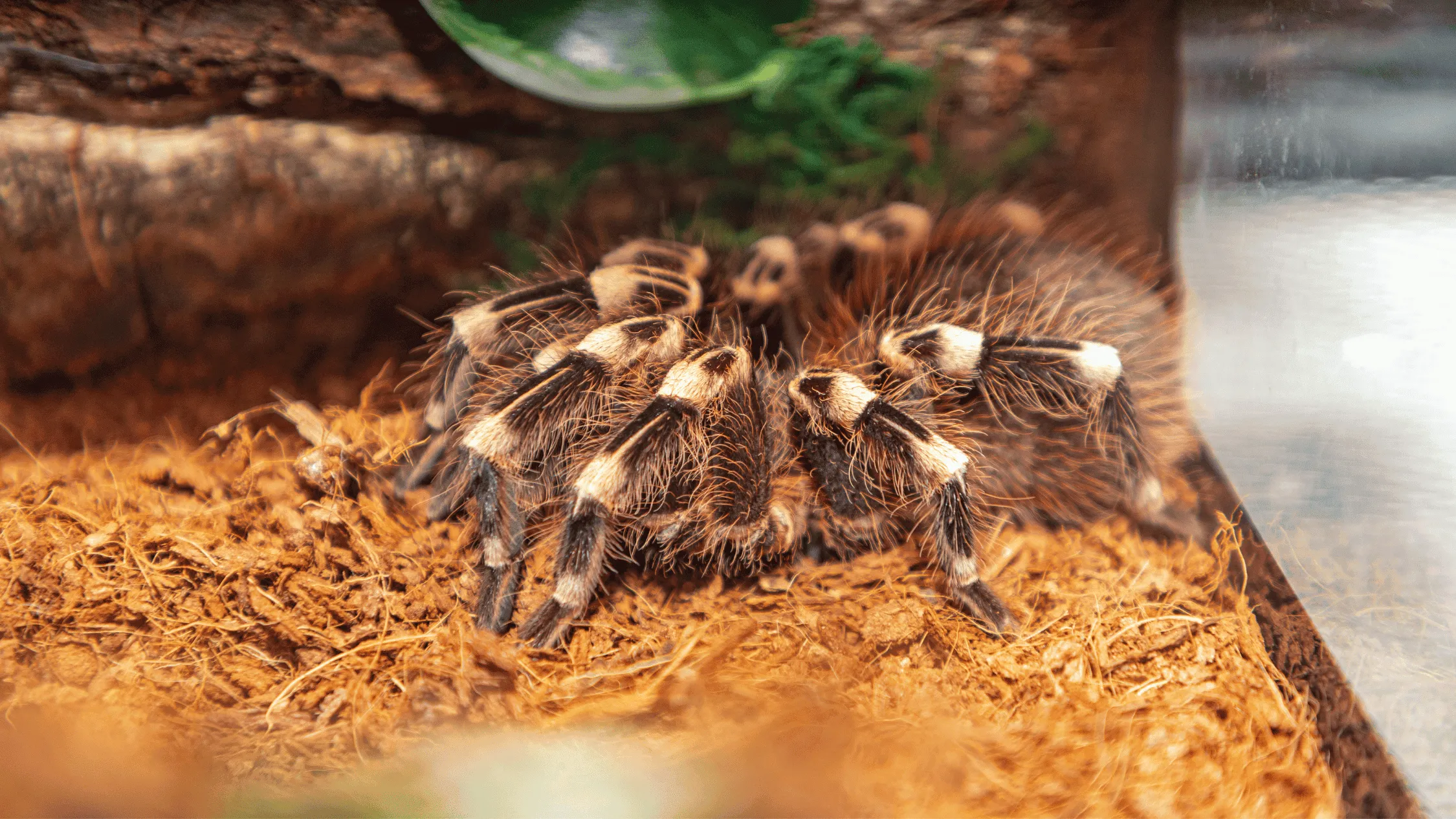Understanding Tarantula Pets
Tarantulas, with their impressive size and intriguing behaviors, have become increasingly popular as pets. These fascinating arachnids offer a unique pet-owning experience, diverging from the more conventional choices of dogs or cats. However, before you decide to bring a tarantula into your home, it’s essential to understand what owning one entails. From their basic biology to their specific needs, a solid foundation of knowledge will ensure you can provide the best possible care for your new eight-legged companion. This guide will help you navigate the world of tarantula ownership.
Reasons to Own a Tarantula
There are numerous reasons why someone might choose a tarantula as a pet. For some, it’s the sheer novelty of owning an exotic creature. Tarantulas provide a captivating educational experience, allowing owners to observe intricate behaviors and life cycles. They require less space than many traditional pets and are generally low-maintenance, making them suitable for individuals with busy lifestyles. Plus, tarantulas are relatively quiet and odorless, which can be a significant advantage for apartment dwellers or those sensitive to pet-related allergies. Owning a tarantula is a statement; it’s a conversation starter and a window into a world of fascinating invertebrates.
What to Consider Before Getting a Tarantula
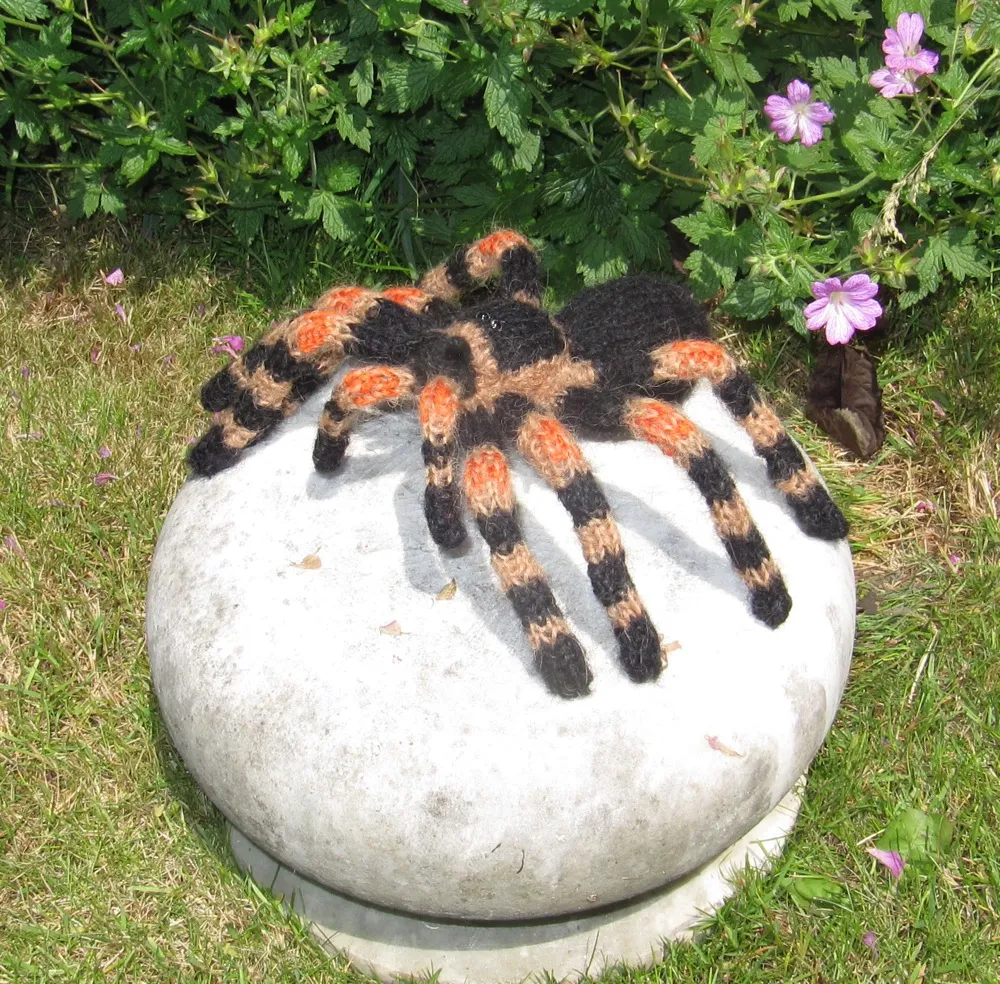
Before taking the plunge, careful consideration is crucial. Firstly, research the specific species you’re interested in. Different tarantulas have varying temperaments, care requirements, and lifespans. Secondly, assess your commitment level. Tarantulas can live for several years, even decades, so it’s a long-term commitment. Thirdly, evaluate your living situation and ensure you can provide a secure, appropriate habitat. Consider the potential for allergies among household members and the risks associated with handling venomous creatures. Finally, familiarize yourself with local laws and regulations regarding exotic pet ownership. By addressing these points, you’ll be well-prepared to offer a safe and enriching environment for your tarantula.
10 Pro Tips to Find Tarantula Pets Easily
Finding a tarantula pet can be an exciting journey. With these ten pro tips, you’ll be well-equipped to locate a healthy, well-cared-for tarantula and begin your journey of tarantula ownership. Remember to prioritize the health and well-being of the tarantula above all else, and always conduct thorough research and preparation before acquiring your new pet.
Tip 1 Research Reputable Breeders
The foundation of a healthy tarantula pet starts with a reputable breeder. Seek breeders with a proven track record of responsible breeding practices. Look for breeders who prioritize the health and well-being of their tarantulas, providing proper care and nutrition. They should be knowledgeable about their species and willing to answer your questions. Reading reviews, checking references, and visiting their facilities (if possible) can help you assess their credibility. A reputable breeder can provide valuable information about the tarantula’s lineage, temperament, and any specific care requirements. A healthy tarantula from the start is a key to a successful pet ownership experience.
Tip 2 Visit Local Pet Stores
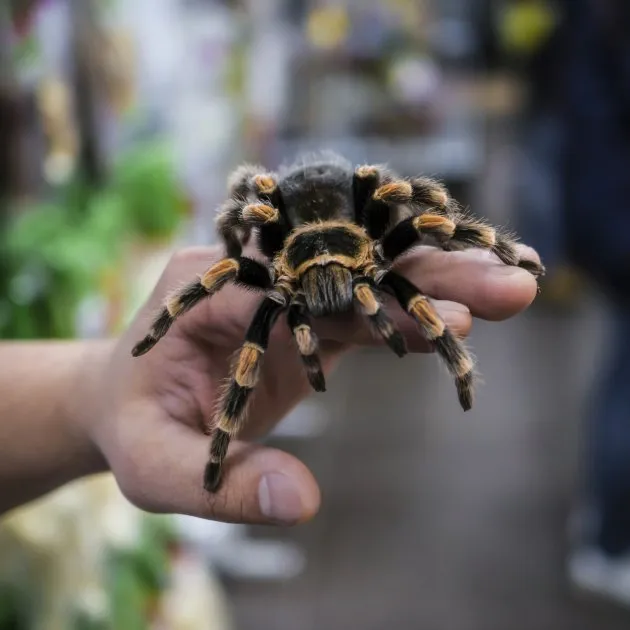
Local pet stores can be a convenient source, but carefully evaluate their tarantula selection. Check for clean and well-maintained enclosures. Observe the tarantulas for signs of health such as a good appetite, healthy appearance, and active behavior. The store staff should be knowledgeable and able to provide care information. If the store lacks expertise or the conditions are not ideal, it’s best to explore other options. Always prioritize the health and welfare of the animal, and don’t hesitate to ask questions about the tarantula’s origin and care. Verify the store’s reputation before purchasing.
Tip 3 Attend Reptile Shows
Reptile shows are fantastic opportunities to connect with breeders, see a wide variety of species, and learn about the care of tarantulas. These events offer a chance to speak directly with experts and ask questions. You can often find tarantulas at various life stages, from spiderlings to adults. Before attending, research the show’s vendors and breeders to ensure they are reputable. Bring cash, as some vendors may not accept credit cards. This is a great opportunity to compare different tarantulas and ask questions.
Tip 4 Search Online Marketplaces
Online marketplaces offer extensive options, but caution is crucial. Use platforms like online classifieds or specialized pet sale websites. Scrutinize seller profiles, reviews, and feedback. Request clear photos and videos of the tarantula and its enclosure. Ask detailed questions about the tarantula’s history, feeding habits, and health. Arrange for safe shipping methods, especially considering weather conditions. Verify the seller’s location and credentials. Meet in a public place, if possible, for in-person transactions. Prioritize your safety and the tarantula’s well-being at all times.
Tip 5 Join Tarantula Forums and Communities
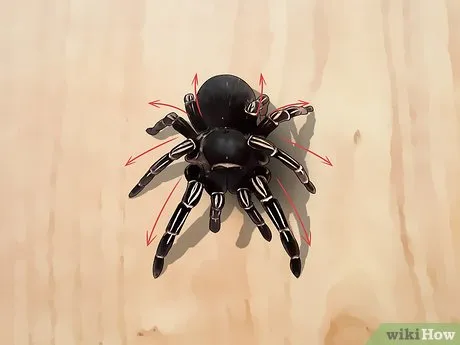
Tarantula forums and online communities offer invaluable resources and advice. Participate in discussions to learn from experienced owners. Ask for recommendations for reputable breeders or sellers. Share your experiences and seek guidance on tarantula care. Many forums have classified sections where members buy, sell, or trade tarantulas. Exercise caution, and always verify the seller’s credibility before making a purchase. Networking in these communities allows you to access trustworthy sources and stay updated on best practices. Always do your own research and follow expert advice from multiple sources to ensure you get the best possible care.
Tip 6 Check Local Animal Shelters and Rescues
While less common, animal shelters and rescues sometimes take in tarantulas. These spiders may have been abandoned or surrendered by previous owners. This option provides a chance to give a tarantula a loving home and support animal welfare. Contact local shelters and rescues to inquire about any available tarantulas. Be prepared to provide information about your experience and your ability to provide proper care. Before adopting, learn about the tarantula’s history and any specific needs. Supporting shelters and rescues is a rewarding way to bring a tarantula into your home. Check the local listings frequently, and consider offering assistance to the shelter.
Tip 7 Verify the Tarantula’s Health
Before acquiring a tarantula, always prioritize its health. Examine the spider for signs of illness or injury. Look for a plump abdomen, indicating adequate feeding. The tarantula should be active and responsive to its environment. Healthy tarantulas typically have a clean, well-maintained enclosure. Avoid tarantulas with signs of parasites, missing limbs, or unusual behaviors. If possible, request information on the tarantula’s most recent molt. A healthy tarantula is a happy tarantula, and a healthy start is essential to ensuring you and your new pet can enjoy many years together.
Tip 8 Inquire About the Tarantula’s Origin
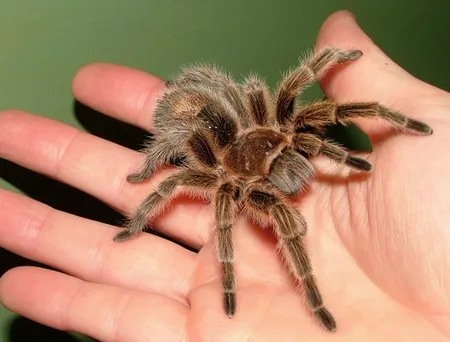
Knowing a tarantula’s origin is important for ethical and practical reasons. Ask the seller about the tarantula’s lineage and breeding history. Find out whether it was captive-bred or wild-caught. Captive-bred tarantulas are generally healthier and more adaptable to a pet environment. Wild-caught tarantulas can carry parasites or diseases and may be more stressed. Understanding the origin helps you provide appropriate care, including habitat, temperature, and humidity. Prioritizing captive-bred tarantulas supports responsible pet ownership and conservation efforts. Knowing where your new pet has come from gives valuable context to the care plan you’ll need to implement.
Tip 9 Ask About the Tarantula’s Temperament
Temperament varies among tarantula species, so ask the seller about the specific tarantula’s personality. Some tarantulas are docile and handleable, while others are more skittish or defensive. Understanding the tarantula’s temperament helps you provide a safe and comfortable environment. Ask the seller how the tarantula reacts to disturbances and handling. Observe its behavior closely before making a purchase. Consider your experience level and comfort level when choosing a species. When handling, always be careful and move slowly, avoiding sudden movements that could startle the spider.
Tip 10 Prepare Your Habitat Beforehand
Before bringing a tarantula home, prepare its enclosure. Research the specific needs of the species you plan to acquire. Choose an appropriately sized enclosure made of glass or plastic. Provide a substrate, such as coconut fiber or peat moss, for burrowing and maintaining humidity. Include a water dish and hiding place for the tarantula to feel secure. Maintain the proper temperature and humidity levels. Having the habitat ready ensures a smooth transition for your new pet and minimizes stress. Set up the enclosure well in advance and make sure to monitor the conditions to guarantee your new pet has everything it needs.
Caring for Your New Tarantula

Once you have secured your tarantula, providing proper care is vital to its well-being. This includes feeding, maintaining the habitat, and ensuring your safety. Understanding the basics of tarantula care will help you establish a healthy and thriving environment for your new companion. This includes regular feeding, proper humidity levels, and a safe environment. With proper care, your tarantula can bring years of enjoyment and fascinating observation.
Feeding Your Tarantula
Feeding your tarantula properly is essential. Provide a varied diet of appropriate insect prey, such as crickets, mealworms, or roaches. The size of the prey should be appropriate for the tarantula’s size. Feed juveniles 1–2 times per week and adults every 1–2 weeks. Remove uneaten prey within 24 hours to prevent stress or potential harm to the tarantula. Ensure your tarantula has a fresh water source at all times. Observe your tarantula’s eating habits and adjust the feeding schedule as needed. A healthy tarantula is one that eats well and is growing in size.
Maintaining the Tarantula’s Habitat
Maintaining your tarantula’s habitat is crucial for its health. Clean the enclosure regularly, removing any waste or uneaten food. Replace the substrate every few months to maintain humidity and prevent the buildup of bacteria. Monitor the temperature and humidity levels using a thermometer and hygrometer. Provide appropriate ventilation to prevent mold growth. Ensure the enclosure is escape-proof and secure. Create a comfortable, safe, and enriching environment that allows your tarantula to thrive. A clean habitat is key to a healthy tarantula.
Health and Safety
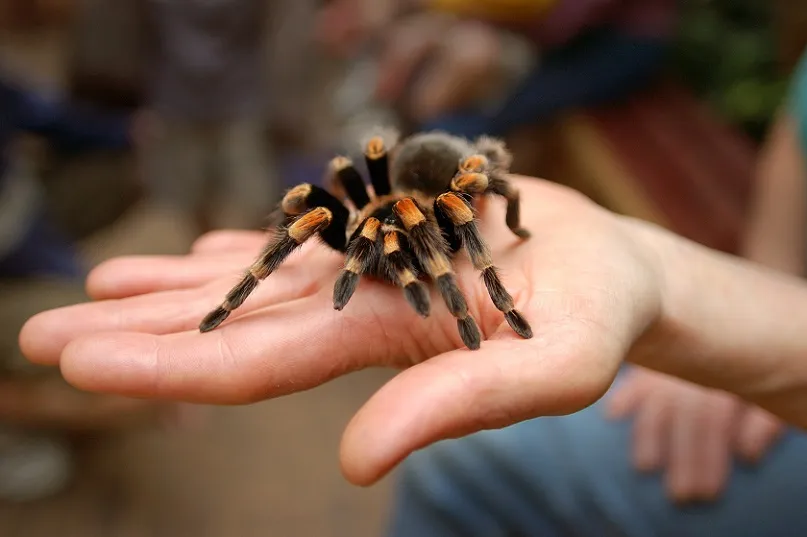
Prioritize health and safety when owning a tarantula. Tarantulas are venomous, so handle them with care. Avoid handling if you are inexperienced or nervous. If you choose to handle, do so close to the ground or over a soft surface to prevent injury from a fall. Research the specific species’ venom potency and potential effects. Wash your hands thoroughly after handling the tarantula or its enclosure. Keep the enclosure secure and away from children and pets. If you experience any adverse reactions, such as a bite, seek medical attention immediately. Safety is paramount in the world of tarantula ownership.
Conclusion
Finding a tarantula pet can be a rewarding experience, provided you do your research and follow these tips. Prioritize the well-being of the tarantula by selecting a healthy specimen from a reputable source and providing proper care and a suitable environment. Enjoy the unique experience of owning one of nature’s most captivating creatures, and be ready to be fascinated by the world of the tarantula. By following these tips, you will be well on your way to finding and caring for your new pet!
